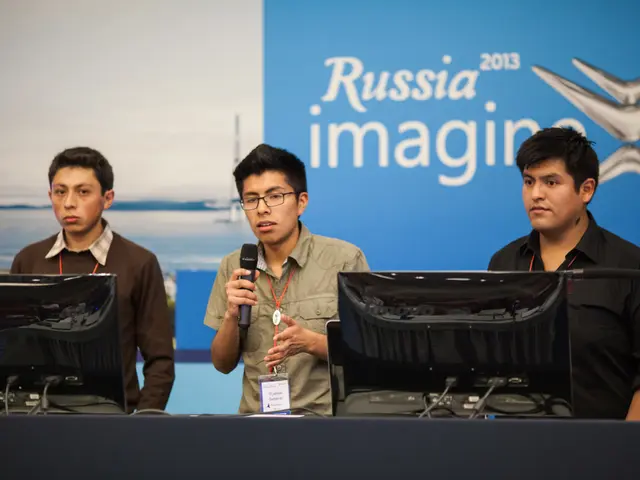Mediterranean's Decreasing Impact Shaped by External Actors: Europe's Fading Influence
The Mediterranean, once a region where the European Union (EU) held significant influence, has experienced a dramatic transformation in recent years. The EU, despite creating an extensive institutional architecture for the region, finds itself wielding little real influence.
One of the key players reshaping the Mediterranean landscape is Russia. By repositioning itself in eastern Libya and providing military and logistical support to Khalifa Haftar, Moscow has gained temporary influence leverage over trade and energy routes towards the eastern Mediterranean.
China, too, has made its mark on the region. Through investments in strategic ports like Piraeus in Greece and Haifa in Israel, China has linked the Mediterranean to its Belt and Road Initiative, further diversifying the region's geopolitical landscape.
Turkey, a long-standing player in the Mediterranean, has asserted itself more assertively in recent years. Not only has Turkey made the Mediterranean a priority axis of its foreign policy, but it has also claimed gas-rich waters in the eastern Mediterranean and imposed maritime restrictions on Israeli trade. These actions have increased regional military tensions and contributed to a loss of EU influence.
The United Arab Emirates and Saudi Arabia are also projecting their financial and political power across North Africa and the eastern Mediterranean. Meanwhile, Iran, through its network of support for Hezbollah and Palestinian factions, has become an uncomfortable and dangerous actor in the Mediterranean.
In response to these shifts, Europe must adapt. Recognizing the Mediterranean as a frontline of hard geopolitics, Europe needs less bureaucracy and more flexibility. The EU should prioritize realistic enlargements, such as Albania, Montenegro, and North Macedonia, and abandon vague promises.
The EU's policy towards the Mediterranean is now reduced to fragmented migration management, with each country negotiating bilaterally. This approach has proven ineffective in maintaining the EU's influence in the region. The Union for the Mediterranean (UfM), launched in 2008, lost balance when all EU members were involved, leading to a heavy bureaucracy incapable of delivering tangible progress.
The 1995 Barcelona Process, Europe's first attempt to build cooperation with the southern shore of the Mediterranean, has struggled due to bureaucracy and lack of momentum. Turkey, for instance, aligns with Russia, Washington, and Qatar when convenient for its interests, further underscoring the need for a more agile and adaptable EU approach.
As the Mediterranean becomes a multipolar arena where the EU is a less relevant actor, it is crucial for the EU to reassert its role and regain its influence. This may involve rethinking its approach to enlargement, streamlining its institutions, and fostering more effective partnerships with key players in the region. The EU must adapt to survive and thrive in this new geopolitical landscape.
Turkey, once a close ally, no longer sees Brussels as its horizon. This shift in Turkey's foreign policy is a stark reminder of the challenges facing the EU in the Mediterranean. The EU must rise to meet these challenges, or risk losing even more influence in this strategically important regional arena.
Read also:
- United States tariffs pose a threat to India, necessitating the recruitment of adept negotiators or strategists, similar to those who had influenced Trump's decisions.
- Weekly happenings in the German Federal Parliament (Bundestag)
- Southwest region's most popular posts, accompanied by an inquiry:
- Discussion between Putin and Trump in Alaska could potentially overshadow Ukraine's concerns




